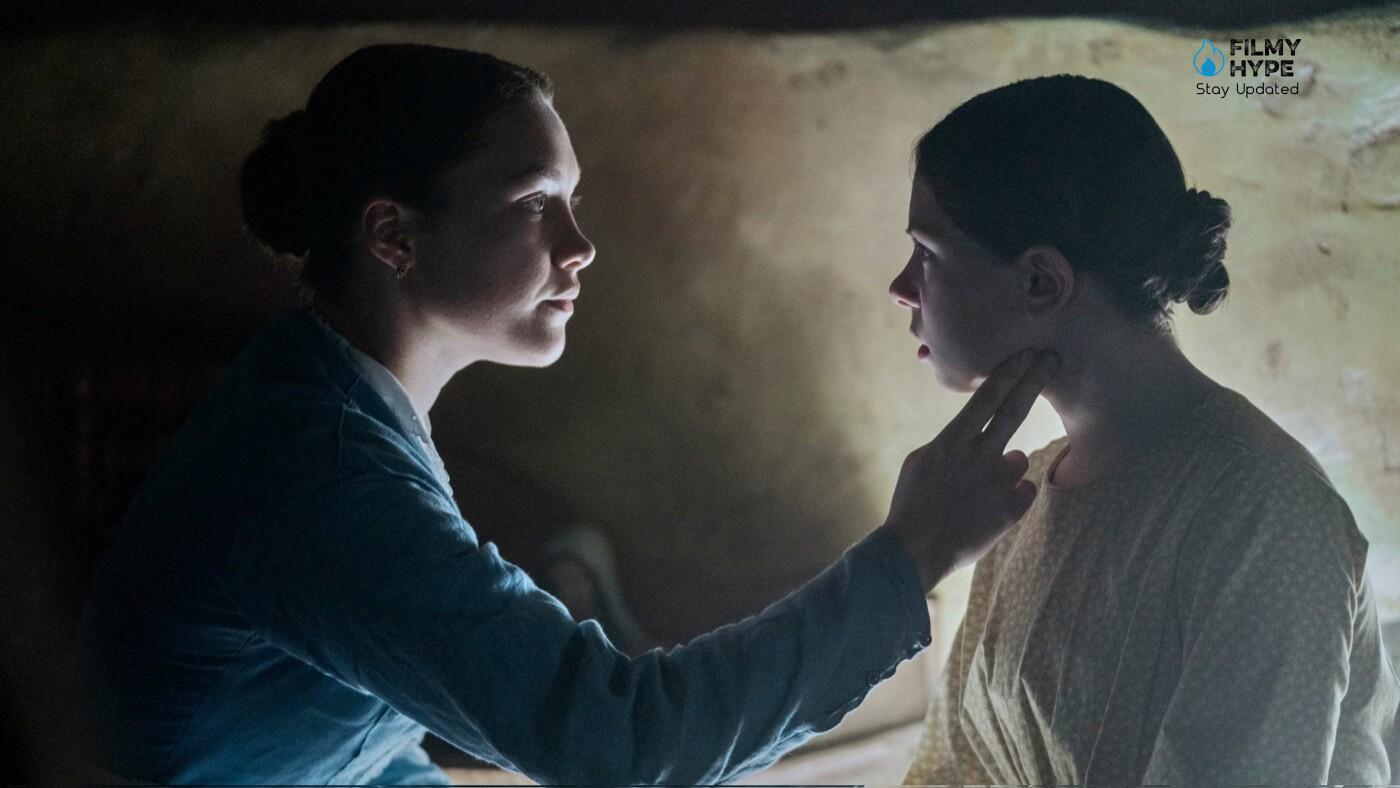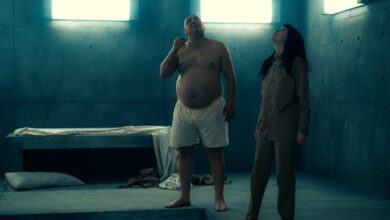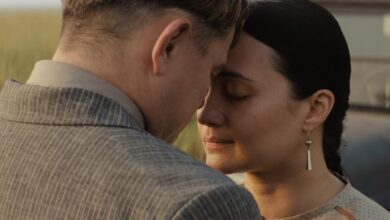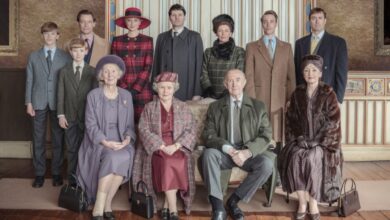The Wonder: Is Netflix Film Starring Florence Pugh Inspired By a True Story? Find Out Here!
The latest movie with Florence Pugh The Wonder is now available on Netflix. Based on Emma Donoghue’s novel of the same name and directed by Sebastián Lelio (Disobedience), this period drama is set in the 19th century and tells the true story of a social phenomenon, which saw young girls claiming they could go months without eating. Many cases have been described and reported, the most famous being that of a young Welsh girl named Sarah Jacob who died of starvation in 1869.

Emma Donoghue did not base her novel on one particular case, but rather on the many accounts of these unexplained events. The writer set her story in Ireland during the Great Famine which occurred between 1845 and 1851. In the film, Pugh plays Lib Wright, an English nurse who tries to unravel the mystery surrounding the claims of Anna O’Donelle, an 11-year-old girl, who says she lives on only a “manna from heaven”. Is she a liar? A miracle? Or is there something much more sinister behind Anna’s statements?
The Wonder: Is Netflix Film Starring Florence Pugh Inspired By a True Story?
Sebastián Lelio said bringing The Wonder to the screen gave him the chance to portray the clash between reason and faith, individual and community, but also to explore his interpretation of what a “period” film can be. In a 2016 NPR interview, Emma Donoghue said that while she drew inspiration from many of these cases for The Wonder, her story is “entirely made up”: “This allowed me to set it in the context that I found richest for this type of story. I set it in my homeland of Ireland, but in the decade after our Great Famine, because I wanted to pit the idea of voluntary starvation against the scary context of involuntary starvation. And I also wanted to draw on the cultural background I know best, which is Irish Catholicism”.
For the character of Nurse Lib Wright, Donoghue explained, “I knew this nurse was going to be in the very unique position of being hired as a kind of jailer. And this part of the novel was inspired by several real cases where a staff of hired observers was brought in to make sure the faster was not eating. And I thought that put a trained nurse in a very unique position where she was on watch.”
Indeed, the very phenomenon of “girl fasting”, such as the case of Sarah Jacob, has led to a dire situation where girls were watched by nurses and doctors, to make sure they did not eat, which ultimately led to the death of many of them. While there have been numerous reports of “girl fasting,” including from across the Atlantic, Jacob’s story is the most famous.
In 1867, Evan and Hannah Jacob’s daughter, Sarah Jacob, fell seriously ill, lost consciousness and suffered from seizures. When she woke up a few weeks later, Sarah asked for milk, which was supposed to be a sign of recovery. However, the girl lost her appetite. Some historians believe that she occupied her time reading the Bible and writing poetry and that she stopped eating to stay weak and avoid her daily chores. Others believe that this phenomenon is the first reported case of anorexia. Whatever this condition was, or whatever Sarah had in mind when she stopped eating, her behavior and her claims that she had completely stopped eating and drinking soon attracted the attention of hundreds of people. Her parents joined in the “fraud” and she publicly announced that their daughter hadn’t eaten in two years.
People from all over the country came to see the miracle. Newspapers wrote about the Welsh girl fasting, and pilgrims began to come to the Jacobs’ house to touch Sarah’s hand while she recited her poems and the Bible. Visitors, delighted to meet Sarah, would also leave some money for the family. Queen Victoria is also said to have planned to visit the maiden. Doubts arose when, although Sarah said she had stopped eating, she still looked in excellent shape, with a fresh complexion, healthy hair and good teeth. Doctors soon suspected a scam and so began to check these girls, with the opposite effect of starving them.
An initial investigation was carried out by local men who stayed at Jacob’s home for two weeks. At the end of these two weeks, they said the fast was genuine, as they had not seen the girl eat. However, men were forbidden from examining Sarah’s bed and her sister was allowed to sleep with her, which is probably the only way she had access to food. A more severe and tragic investigation took place shortly afterwards, conducted by medical professors at Guy’s Hospital in London. The nurses had to sit by Sarah’s bed and had to supervise her at all times.
They were specifically asked not to treat or help the girl unless she asked for food or water. But Sarah never asked and died within a week. Evan and Hannah Jacob. Why did her parents agree to this severe investigation and let their daughter die? Did they believe Sarah was a miracle? Were Sarah and the other “fasting girls” the first undiagnosed victims of anorexia or other eating disorders?





